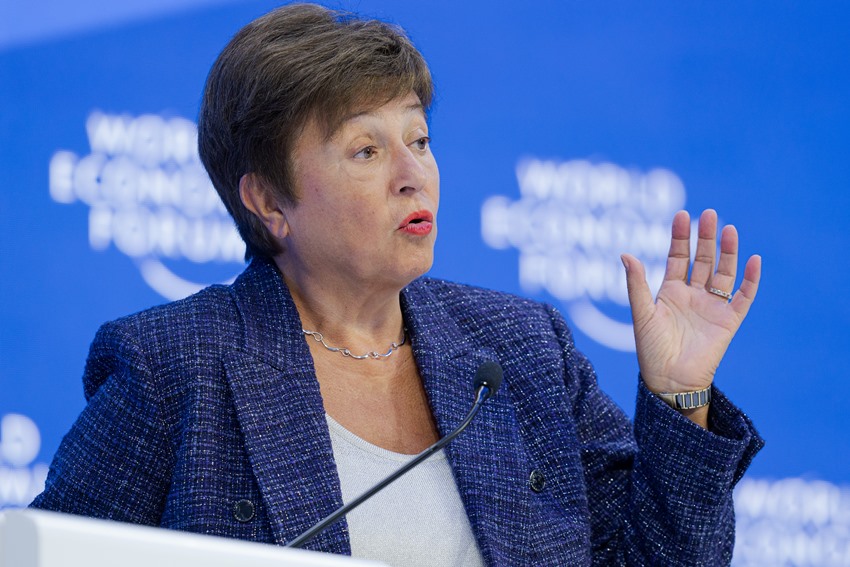DAVOS, Switzerland – International Monetary Fund (IMF) Managing Director Kristalina Georgieva issued a stark call for action on Wednesday, urging countries to redirect a staggering $7 trillion in annual fossil fuel subsidies towards combating climate change.
Addressing the World Economic Forum in Davos, Georgieva highlighted the twofold nature of these subsidies: $1.3 trillion in direct government support and an additional $5.7 trillion stemming from failure to price carbon emissions. She emphasized the need to set a carbon price of $85 per ton by 2030, stating that pricing at even 25% of that rate could generate $800 billion for climate mitigation efforts, doubling to $1.5 trillion at 50%.
“Let’s get to bringing resources, taking them from where they hurt to putting them where they help,” Georgieva urged.
My message at today’s @wef session on climate and nature: pull back on harmful fossil fuel subsidies and use those resources for climate action. With action, we can leave a heathy planet to our children and grandchildren. #wef24 pic.twitter.com/Uh7TcyafHI
— Kristalina Georgieva (@KGeorgieva) January 17, 2024
The IMF is integrating emission reduction goals into its macroeconomic policy discussions with major polluters and climate adaptation goals with vulnerable nations. World Bank President Ajay Banga echoed Georgieva’s sentiment, stressing that the world “cannot afford another set of decades of emissions-heavy growth.”
Banga urged leaders to prioritize finding ways to finance clean energy sources and remove roadblocks for private investment. “We cannot be the ones who do all these projects and put them on our balance sheet,” he declared, highlighting the World Bank’s efforts to mitigate political risk with a goal of increasing guarantees to $20 billion annually by 2030, up from the current $6 billion to $7 billion.
Regulatory uncertainty and foreign exchange risks are also posing challenges for private investment in the energy transition, according to Banga. He emphasized the World Bank’s role in mitigating these risks by offering guarantees, stating, “These countries don’t have hedging markets that are deep enough. Institutions like ours have got to find a way to come in and fill that gap.”








